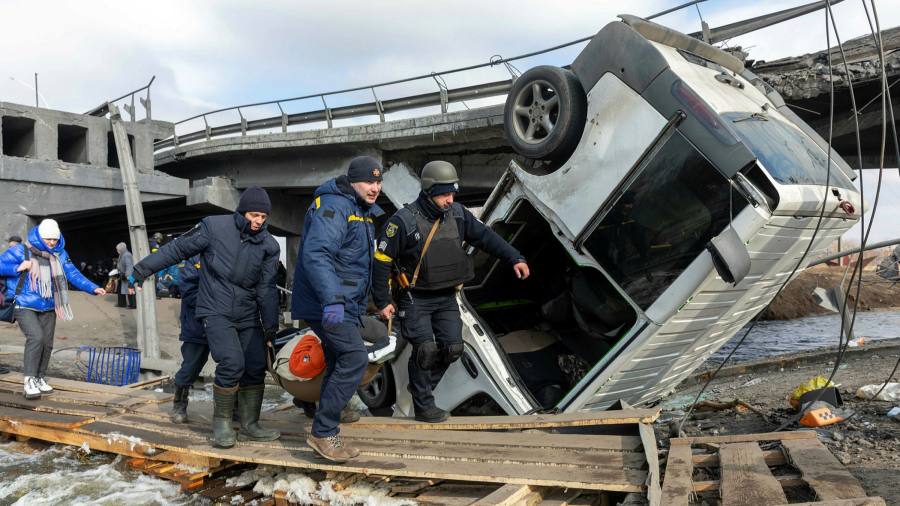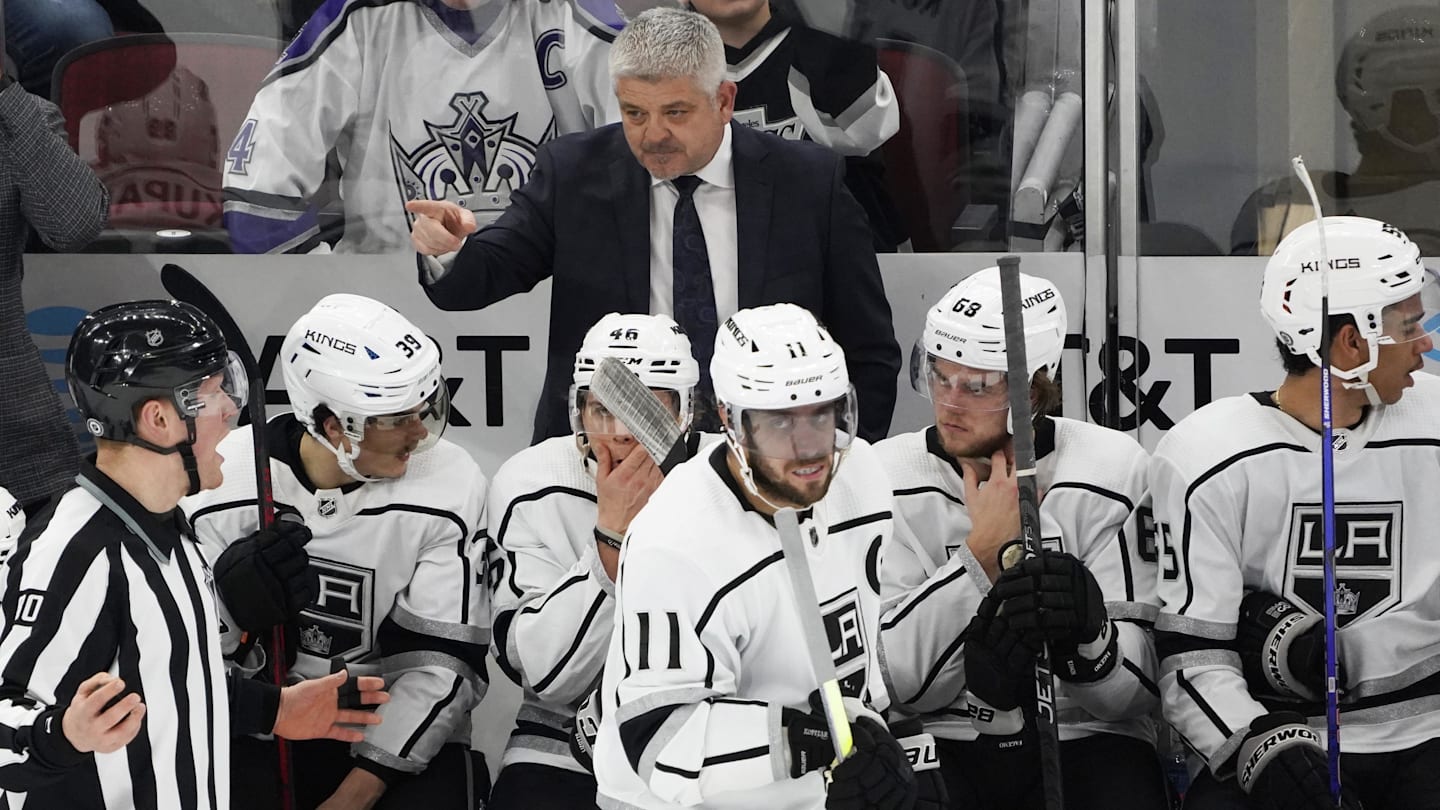An enlarged cartoon of Tintin pictured on display at Paris’ Pompidou Cultural Center in 2006. The Belgian cub reporter is among the characters and works entering the public domain in 2025.
Jacques Brinon/AP
hide caption
toggle caption
Jacques Brinon/AP
Jan. 1 marks the dawn of a new era for Popeye and Tintin. It’s the day the nonagenarian cartoon characters officially enter the U.S. public domain along with a treasure trove of other iconic works.
The copyrights of thousands of films, songs and books expire in 2025, making them instantly available for people to use, share and adapt. The list includes classics like Virginia Woolf’s book A Room of One’s Own, the Fats Waller song “Ain’t Misbehavin’” and the Marx Brothers’ first feature film, The Cocoanuts.
The main thing they have in common is their age — under U.S. copyright law, their terms all expire after 95 years. All of the works entering the public domain next year are from 1929, except for sound recordings, which (because they are covered by a different law) come from 1924.
“Copyright’s awesome … but the fact that rights eventually expire, that’s a good thing, too, because that’s the wellspring for creativity,” says Jennifer Jenkins, the director of Duke’s Center for the Study of the Public Domain, which spends months poring over records to compile the most famous examples.
Once in the public domain, these works become fodder for remakes, spinoffs and other adaptations.
That explains the recent wave of horror films starring Mickey Mouse and Winnie the Pooh, characters that entered the public domain in 2024 and 2023 respectively. The trend seems poised to continue: Jenkins says there are already three Popeye slasher flicks in the works.
“They’re capitalizing on the incongruity of this comic book character in a different genre and they get a lot of buzz,” she adds. “[But] when I sit back and look at the universe of remakes of public domain characters or works … the things that we still talk about that stand the test of time don’t tend to be these buzzworthy, kind of ew, grossed-out features.”
More enduring examples include West Side Story drawn from Shakespeare’s Romeo & Juliet, screen adaptations of Jane Austen’s Emma, Percival Everett’s 2024 book James (a retelling of Huckleberry Finn) and Wicked, the musical-turned-movie prequel to L. Frank Baum’s Wizard of Oz.
But these artifacts don’t only become fodder for big-name directors and authors — they’re available for anyone who wants to use them, from artists to high school orchestra directors.
Jenkins says she gets “adorable emails” from people who are drawing their own little Winnie the Pooh cartoons, and parents whose kids are talented musicians, eager to finally be able to perform certain compositions publicly and post them online.
In other words, the impact of public domain works extends far beyond the box office and Billboard charts.
“I’m excited about those things that not everybody’s going to notice — people really re-discovering some of these older works and engaging with them and appreciating them and making them their own,” she adds.
Here’s a look at some of the works that are just days away from the public domain:
Characters
A helium-filled Popeye balloon participates in the 33rd Macy’s Thanksgiving Day Parade in New York in 1959, three decades after his comic strip debut.
AP/AP
hide caption
toggle caption
AP/AP
Tintin the brave cub reporter — and his dog, Snowy — will enter the public domain in the U.S. well before they will in the European Union, where they are copyrighted until 2054. That’s because EU copyright terms extend 70 years past creators’ deaths, and Belgian cartoonist Hergé died in 1983.
Closer to home there’s E.C. Segar’s Popeye, who made his debut in a January 1929 Thimble Theatre cartoon strip. He sports his signature pipe, sailor outfit, anchor tattoo and sense of humor, responding when asked if he’s a sailor: “Ja think I’m a cowboy?”
He could have a whole new set of adventures starting in 2025. But there’s a catch: Popeye didn’t start deriving his strength from spinach until 1932.
As Jenkins explains, many cartoon characters develop over time and have been in copyrighted works year after year, meaning certain aspects of them may come into the public domain in different years. So only the original 1929 versions of Popeye and Tintin are fair game, at least for now.
“Definitely the Popeye from 1929 and everything that he says, all of his characteristics, his personality, his sarcasm … that’s public domain,” she says. “The spinach, if you want to be on the safe side, you might want to wait.”
Films
The Wild Party, Clara Bow’s first talkie, was released in 1929, making it public domain in 2025.
LMPC via Getty Images
hide caption
toggle caption
LMPC via Getty Images
Similarly, the original Steamboat Willie version of Mickey Mouse arrived in the public domain with much fanfare in 2024. In 2025, a dozen more Mickey animations will follow suit — including The Karnival Kid, in which he speaks for the first time.
“His very first words are ‘Hot dogs! Hot dogs!’ — so I guess that’s kind of cute,” Jenkins says. “And then he didn’t wear the white gloves in 1928, but next year, in 2025, we get the version of Mickey Mouse with the signature white gloves in the public domain.”
Sound is a big theme across the films making their public domain debut next year, since 1929 marked the end of the silent film era and the dawn of the sound film age.
The list includes the first sound films from major directors like Alfred Hitchcock (Blackmail), John Ford (The Black Watch) and Cecil B. DeMille (Dynamite), as well as Clara Bow’s first talkie, The Wild Party, and The Broadway Melody, the first sound film to win an Academy Award for Best Picture.
Other notables include Walt Disney’s The Skeleton Dance (the first of the Silly Symphony shorts); King Vidor’s Hallelujah, the first major studio film with an all-Black cast; and Alan Crosland’s On With the Show, the first all-talking, all-color, feature-length film.
Books
From left: Ernest Hemingway in 1950, William Faulkner in 1950, and John Steinbeck in 1962.
AP/AP
hide caption
toggle caption
AP/AP
Among the many literary works entering the public domain next year are two of the most acclaimed books about World War I: Ernest Hemingway’s A Farewell to Arms, and the first English translation of Erich Maria Remarque’s All Quiet on the Western Front — both authors served in the war themselves.
The list includes several detective mysteries: Red Harvest and The Maltese Falcon by Dashiell Hammett, Ellery Queen’s The Roman Hat Mystery, and Seven Dials Mystery by Agatha Christie.
There are also some literary debuts, including John Steinbeck’s first novel, Cup of Gold, and Richard Hughes’ first novel A High Wind in Jamaica.
Musical compositions
George Gershwin’s “An American in Paris” is among the musical compositions entering the public domain in 2025.
PALM/RSCH /Redferns
hide caption
toggle caption
PALM/RSCH /Redferns
The latest crop of compositions spans the era’s jazz standards, show tunes, pop music and more.
They include: Arthur Freed’s Singin’ in the Rain (which was featured in the film The Hollywood Revue of 1929, also entering public domain), George Gershwin’s An American in Paris, Maurice Ravel’s Bolero, Jack Yellen’s Happy Days Are Here Again (the campaign song for FDR’s 1932 presidential run), Cole Porter’s What Is This Thing Called Love? and Tiptoe Through the Tulips (the Joseph Burke version, not the 1968 Tiny Tim one).
“But if you felt like singing like Tiny Tim for some reason, and you could, you can record your own version of Tiptoe Through the Tulips next year because that song’s going to be public domain,” Jenkins says.
The Center for the Study of Public Domain specifies that musical compositions refer to “the music and lyrics that you might see on a piece of sheet music, not the recordings of those songs.” Those are covered by a separate copyright.
Sound recordings
Marian Anderson became the first Black singer to perform at the Metropolitan Opera House in New York in 1955. One of her early recordings from 1924 will enter the public domain next year.
London Express/Hulton Archive/Getty Images
hide caption
toggle caption
London Express/Hulton Archive/Getty Images
Under the 2018 Music Modernization Act, sound recordings are protected by copyright for 100 years. It’s the particular recordings that eventually enter the public domain, not the song’s music or lyrics or later recordings from those artists.
These are some of the 1924 performances that will become available for legal reuse in January: Marian Anderson’s “Nobody Knows the Trouble I’ve Seen,” George Gershwin’s “Rhapsody in Blue,” Jelly Roll Morton’s “Shreveport Stomp,” “Deep Blue Sea Blues” by Clara Smith, and “Everybody Loves My Baby (But My Baby Don’t Love Nobody But Me)” recorded by Louis Armstrong and Clarence Williams’ Blue Five.































/cdn.vox-cdn.com/uploads/chorus_asset/file/24924653/236780_Google_AntiTrust_Trial_Custom_Art_CVirginia__0003_1.png)





/cdn.vox-cdn.com/uploads/chorus_asset/file/25672934/Metaphor_Key_Art_Horizontal.png)
